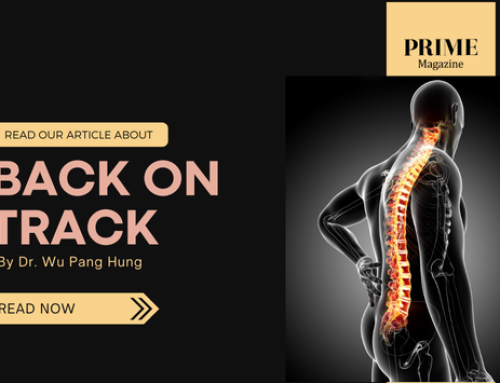In Singapore, heart attack is the number 2 killer after cancer.
[large_title title=”What is a heart attack?”]
Your heart needs oxygen to function. A heart attack occurs when the coronary artery that supplies the muscles of the heart with oxygenated blood is suddenly blocked off by a clot. This usually happens when the coronary artery develops cholesterol plaque which suddenly ruptures causing a blood clot to form around it. This blood clot can block the artery and shut off blood flow to the heart muscle. When the heart muscle is starved for oxygen and nutrients, it is called ischaemia. Within minutes of ischaemia, the muscles of the heart will die, resulting in a heart attack.
[large_title title=”Warning signs of a heart attack”]
- Chest pain – discomfort in the centre of the chest that lasts for more than a few minutes, or pain that goes away and comes back
- Discomfort in one or both arms, the back, neck, jaw or stomach
- Shortness of breath with or without chest discomfort
- Breaking out in cold sweat, nausea or light-headedness
[large_title title=”Risk Factors and Prevention”]

High blood cholesterol
The risk of heart disease increases with the increase in blood cholesterol, high blood pressure and presence of tobacco smoke. A person’s cholesterol level is also affected by age, sex, heredity factors and diet.
High blood pressure
High blood pressure, together with diabetes and factors like obesity, increase the heart’s workload, causing the heart muscles to thicken and the arteries that supply the heart and brain to become stiff. This can cause the heart to malfunction.
Obesity and overweight
People with excess body fat, especially at the waist, are more likely to develop heart disease. Excess weight increases the heart’s work and also raises blood pressure, blood cholesterol and increase the likelihood of diabetes. By shedding a few kilograms, you can lower your risk of heart disease.
Physical inactivity
An inactive lifestyle is a risk factor for coronary heart disease. Regular, moderate-to-vigorous physical activities help to prevent heart and blood vessel diseases. Even regular, light to moderate exercises can help control blood cholesterol, diabetes and obesity, as well as help lower blood pressure.
Stress
Individual response to stress (“How stress is affecting your health”) may be a contributing factor. It is important to learn how to relax and strive for work-life balance to ensure proper stress management. Try some light yoga or listen to some soothing tunes to relax your mind.
Alcohol
Excessive alcohol intake can raise blood pressure and produce irregular heartbeats. Limit your alcohol consumption to no more than 2 drinks per day for men and no more than 1 drink per day for women.
Diet and nutrition
The food you eat and the amount can affect controllable risk factors like cholesterol, blood pressure, diabetes and excess weight. Choose nutrient-rich foods (“Hearty foods for Heart Health”) like vegetables, fruits, whole-grain and fat-free or low-fat dairy products which have vitamins, minerals, fibre and other nutrients.
Tobacco smoke
Smokers are two to four times more likely than non-smokers to develop coronary heart disease. Those who smoke a pack of cigarettes a day have more than twice the risk of heart attack than people who do not smoke. Second hand smoke also exposes non-smokers to the risk of heart diseases. Quit smoking today!
Credit
Dr Peter Yan, Cardiologist
References
Health Promotion Board
![]()











